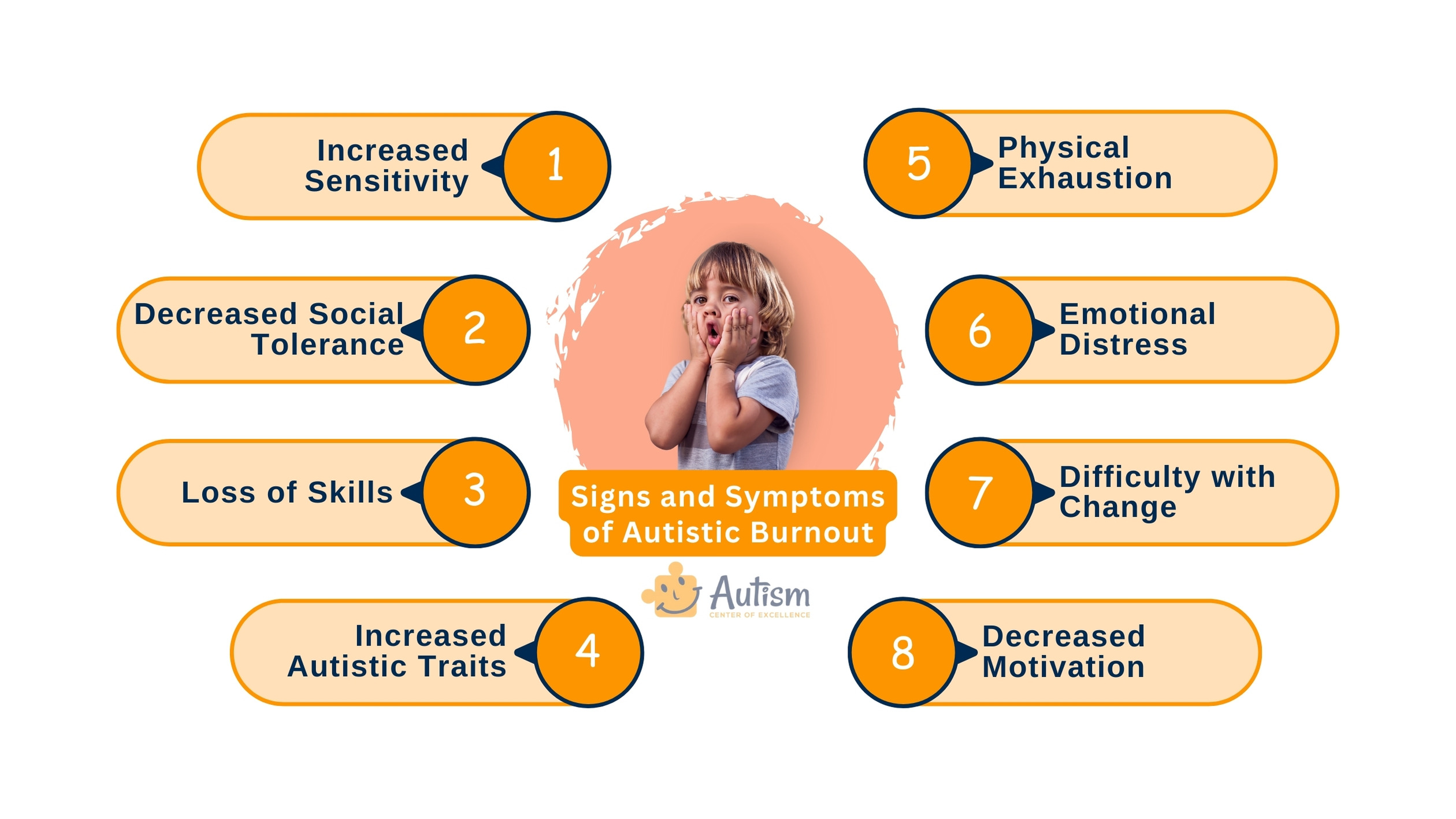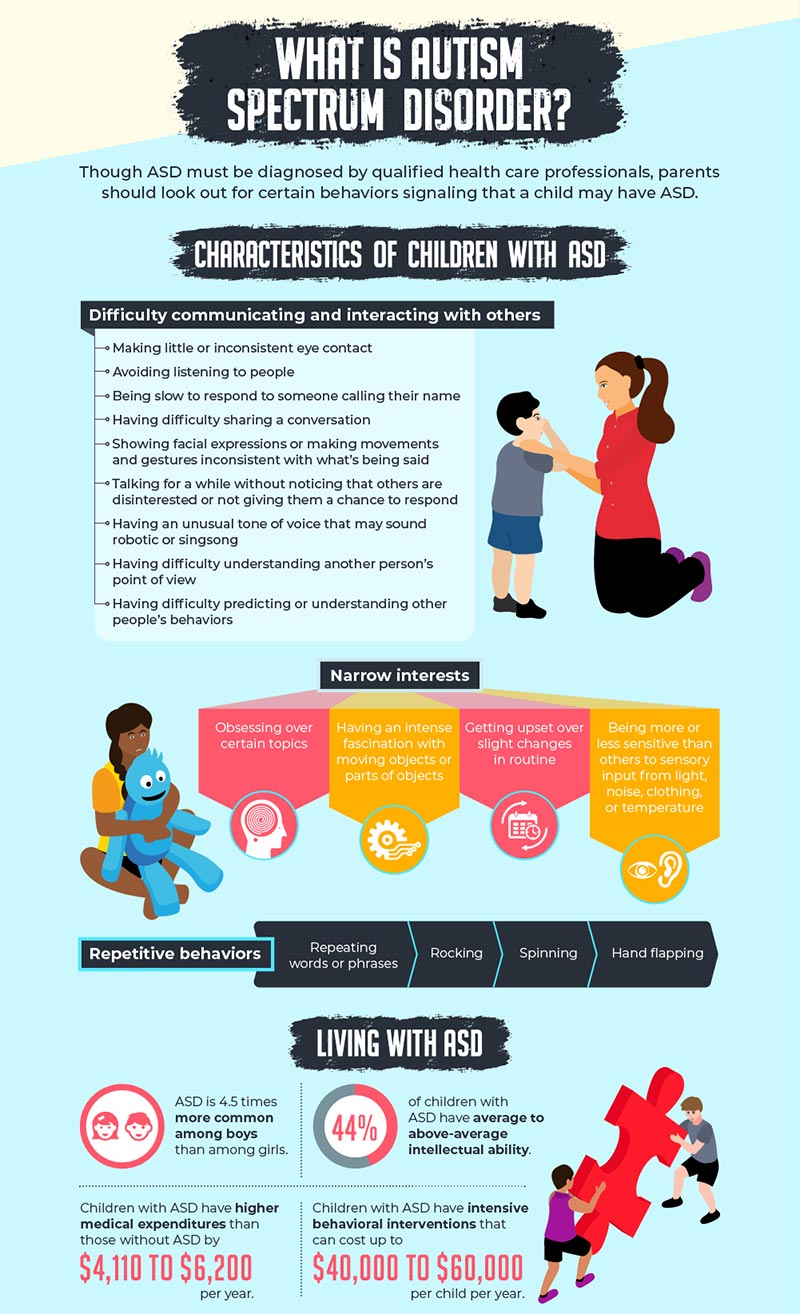Seven Powerful ways an Autism Spectrum Therapies provider can assist with daily interaction challenges
Key Indications and Signs And Symptoms to Acknowledge in Individuals With Behavior Autism
When you run into someone with behavioral autism, recognizing key symptoms and signs is essential. You may notice difficulties in social interactions and interaction, in addition to a solid need for routines. In addition, sensory sensitivities can result in frustrating experiences. Comprehending these qualities can enhance your assistance and interventions, but there's even more to discover concerning just how these behaviors show up in everyday circumstances. Let's discover what these indicators truly appear like.
Challenges in Social Interactions
When you engage with somebody on the autism spectrum, you could notice they have a hard time with social cues and communication. These challenges can make social interactions really feel overwhelming for them. You might see them staying clear of eye get in touch with or standing as well close or too far throughout discussions, which can create misunderstandings. They could not notice body movement or face expressions, making it harder for them to evaluate exactly how others are feeling.
When they do engage, they may chat concerning their rate of interests in fantastic detail without discovering if you're interested. Recognizing these challenges can aid you come close to communications with compassion and perseverance, cultivating an extra comfortable setting for both of you.
Difficulty With Verbal and Non-Verbal Interaction

Identifying these indications is important, as it helps you far better assistance and involve with people on the autism range. By recognizing their interaction challenges, you can foster much more meaningful links and provide a much more encouraging atmosphere.
Recurring Habits and Routines
Interaction difficulties commonly go along with other indications of autism, such as repeated behaviors and a solid preference for regimens. You could observe that individuals with autism usually participate in certain, repetitive activities, like hand-flapping, rocking, or repeating expressions. These habits can give convenience and a sense of control in an often overwhelming world.
Regimens are equally essential; numerous individuals grow when they comply with a structured routine. You may locate that adjustments to these regimens can bring about substantial distress. If they have a day-to-day ritual of consuming morning meal at a particular time or complying with a certain route to institution, any kind of disruption can create anxiety.
Acknowledging these patterns helps you recognize their behavior and give assistance. By accommodating their demand for regular and allowing recurring activities, you can produce a more comfortable environment that eases their difficulties.
Sensory Sensitivities

Usual Sensory Triggers
Sensory level of sensitivities can considerably impact daily life for individuals with autism, as particular stimulations commonly cause frustrating responses. Usual sensory triggers include loud sounds, intense lights, and solid scents. Comprehending these triggers can aid you handle your atmosphere better.
Behavioral Responses Described
Comprehending your behavior actions to sensory sensitivities is essential, as they frequently reveal how you engage with the globe. You might likewise find on your own looking for particular sensory experiences, like deep pressure or peaceful atmospheres, to aid ground yourself. Recognizing these patterns assists you understand your needs far better and can direct just how you connect them to others.
Coping Approaches Overview
Recognizing your sensory sensitivities is simply the initial step; now it's time to explore coping techniques that can help you take care of those experiences properly. Begin by creating a sensory toolkit tailored to your demands. This could consist of noise-canceling earphones, fidget toys, or soothing scents. Developing a structured routine can likewise give predictability, lowering anxiousness around sensory overload. When you feel overwhelmed, take breaks in a quiet space to collect yourself. Practicing mindfulness techniques like deep breathing can assist ground you in the moment. In addition, interact your demands with those around you; having encouraging pals and family members can make a huge distinction. Bear in mind, finding what functions ideal for you might require time, so be patient and open to trying brand-new strategies.
Restricted Interests and Emphasis
While many individuals create a vast array of rate of interests, those with autism usually demonstrate restricted passions and an extreme emphasis on details subjects. You might discover that somebody with autism can invest hours delving into their preferred subject, whether it's a certain type of train, a particular movie, or a scientific idea. This intense focus isn't just a leisure activity; it can come to be a central component of their identity and social interactions.
You may locate that discussions rotate around these rate of interests, and they may battle to engage in broader subjects. By understanding and recognizing these restricted rate of interests, you can promote a supportive setting where they really feel valued and recognized, permitting for more purposeful connections and communications.
Psychological Law Problems
People with autism often face difficulties in emotional law, which can be affected by their extreme focus on particular passions. You might see go that when an individual is deeply taken part in a favored activity, they can experience strong emotions, whether excitement or aggravation. This intensity sometimes makes it tough for them to change gears or manage their feelings when things do not go as planned.

Irregularity in Developing Milestones
When it involves developmental turning points, you'll see that individuals with autism commonly show a broad range of variability. Some may strike turning points on schedule, while others might drag or progression at a various speed. You might see a child stand out in language skills however battle with social communications. This variance can be complicated, as typical benchmarks don't always use.
It's important to recognize that each person's trip is special. Observing these patterns can aid you recognize their staminas and needs better.
Regularly Asked Inquiries
How Is Autism Detected in Kid and Adults?
To detect autism in youngsters and adults, specialists examine behavior, interaction abilities, and social communications. They usually utilize standardized examinations, interviews, and monitorings to determine if a private meets the standards for autism range disorder.
Are There Various Kinds Of Autism Range Disorders?
Yes, there are different kinds of autism range conditions, consisting of Asperger's syndrome and pervasive developing disorder-not otherwise defined. Each important source type varies in severity and qualities, so comprehending these differences can help you better support people with autism.
What Treatments Work for People With Autism?
When taking into consideration effective treatments for individuals with autism, you'll discover alternatives like Applied Habits Evaluation, speech therapy, and work therapy. Each method can help enhance interaction, social abilities, and daily functioning tailored to private demands.
Can People With Autism Lead Independent Lives?
Yes, individuals with autism can lead independent lives. With the best assistance, abilities training, and resources, you can help them establish self-sufficiency, handle day-to-day tasks, and flourish in various environments, promoting their self-reliance.
How Can Families Support Liked Ones With Autism?
You can sustain your enjoyed ones with autism by producing a structured atmosphere, motivating their rate of interests, YOURURL.com exercising perseverance, promoting communication, and promoting social skills. Celebrate their achievements, despite exactly how small, and develop a helpful neighborhood.
Although lots of people on the autism range can use and recognize language, they commonly encounter significant challenges with both non-verbal and spoken communication. Recognizing these indicators is important, as it helps you much better assistance and engage with people on the autism spectrum. You might notice that individuals with autism frequently involve in particular, repetitive activities, like hand-flapping, shaking, or repeating phrases.Sensory level of sensitivities can considerably impact day-to-day life for people with autism, as specific stimuli frequently trigger overwhelming responses.When it comes to developing turning points, you'll discover that people with autism often show a vast range of variability.